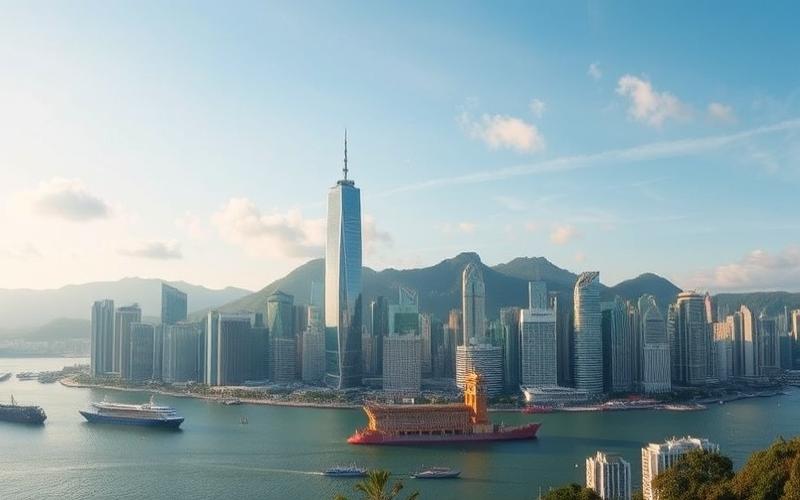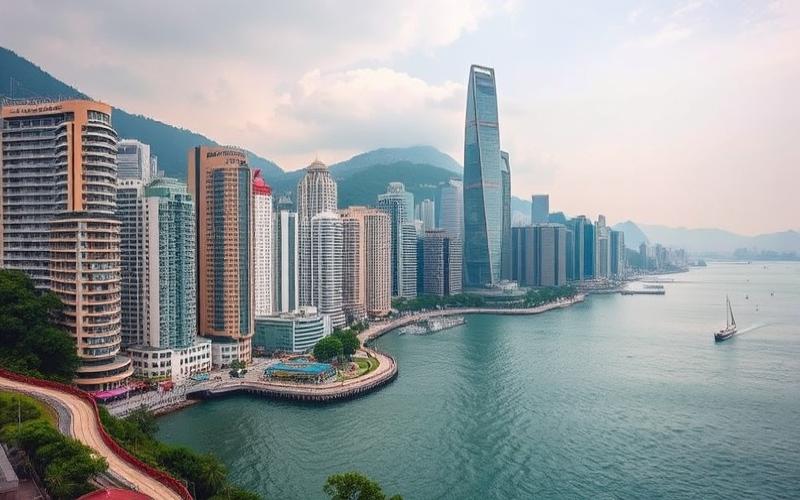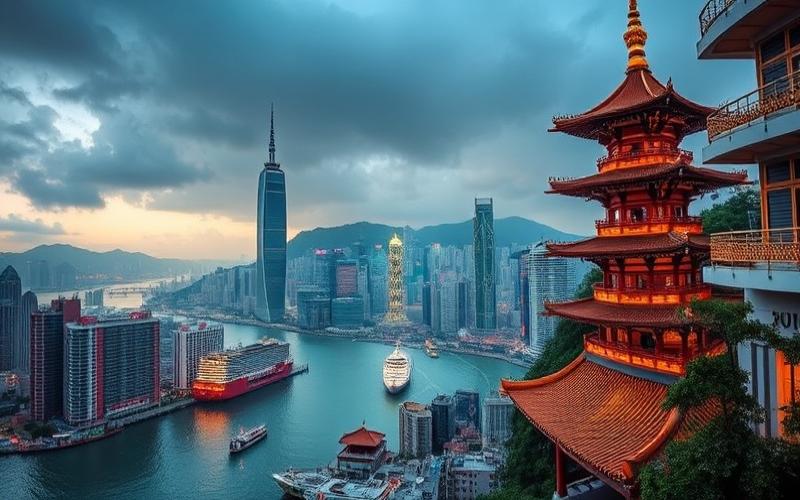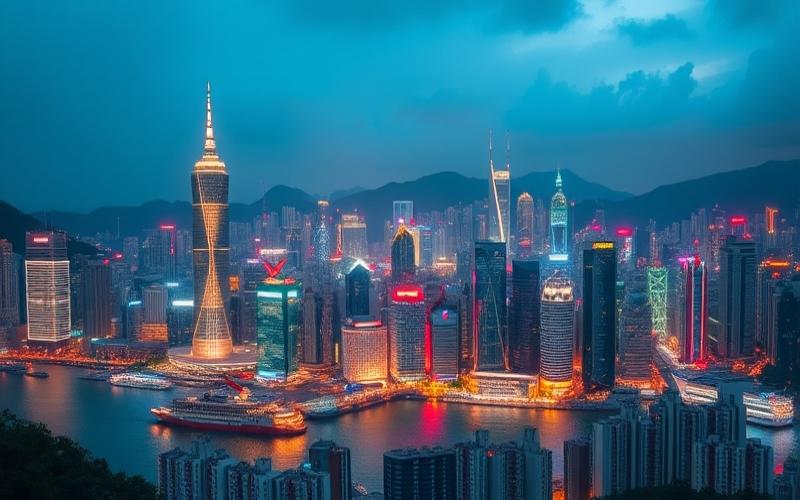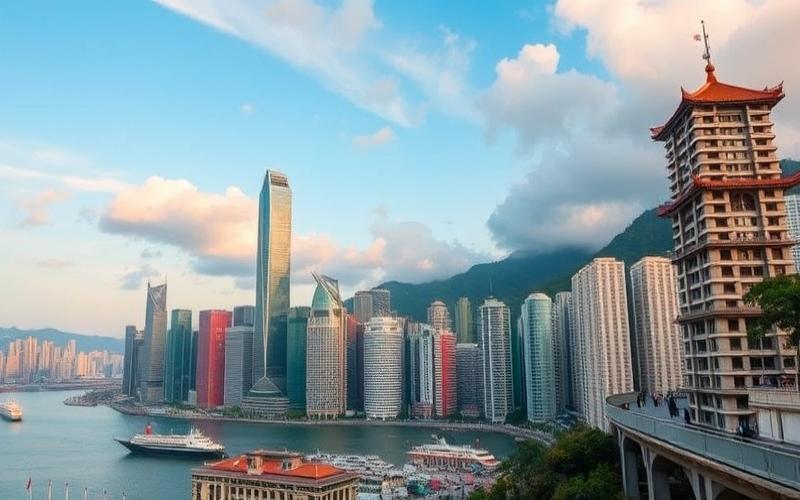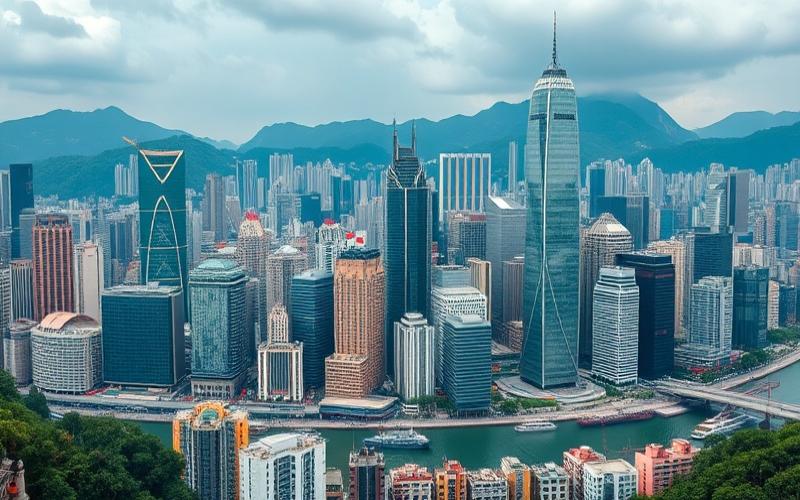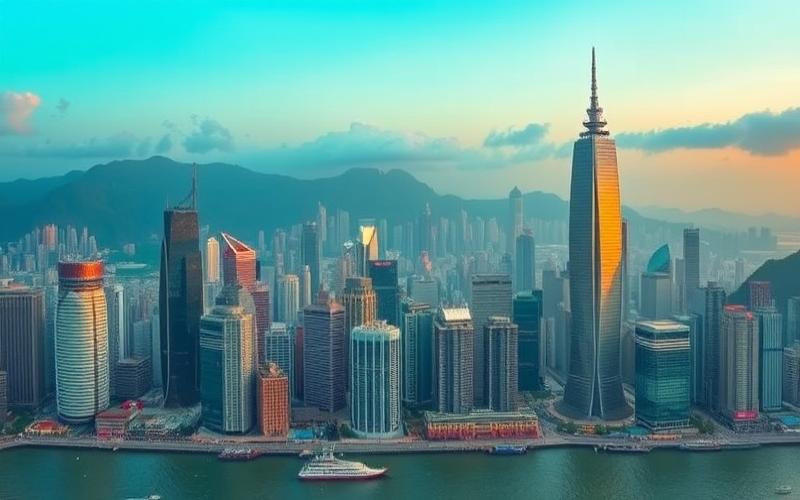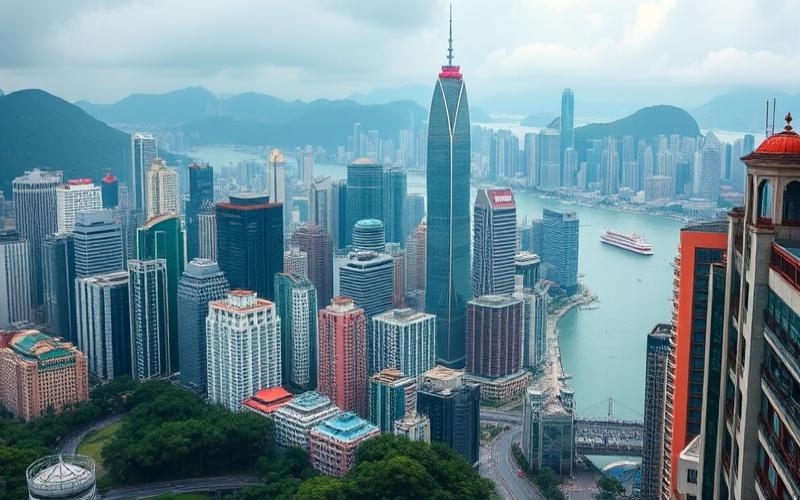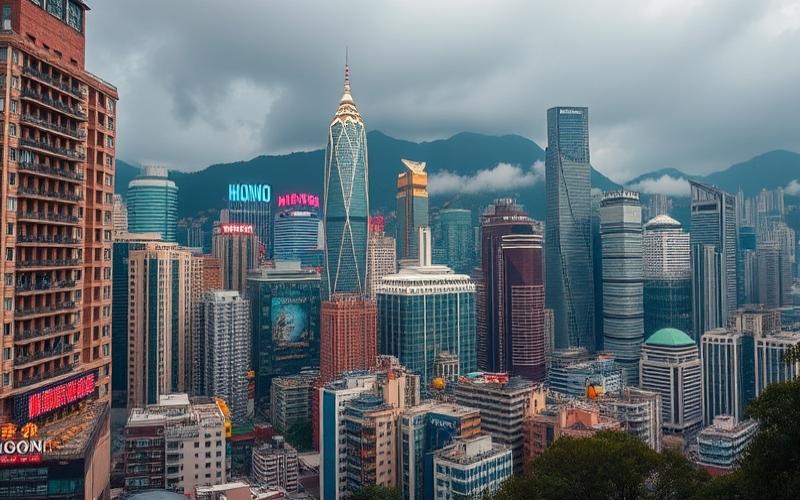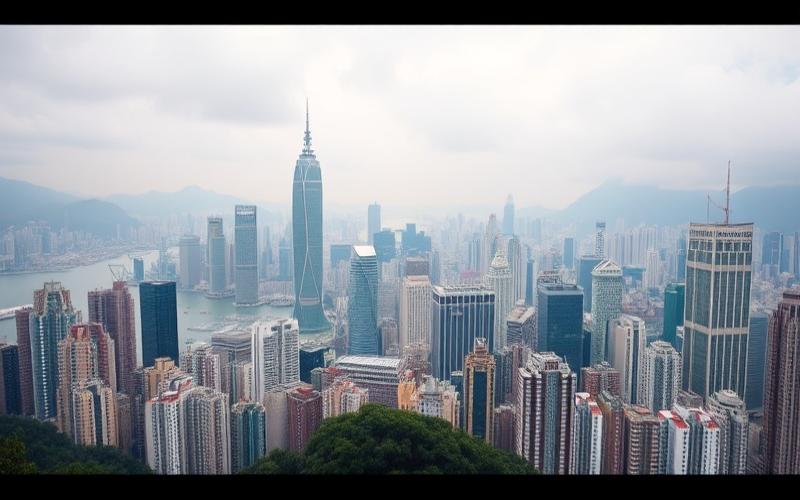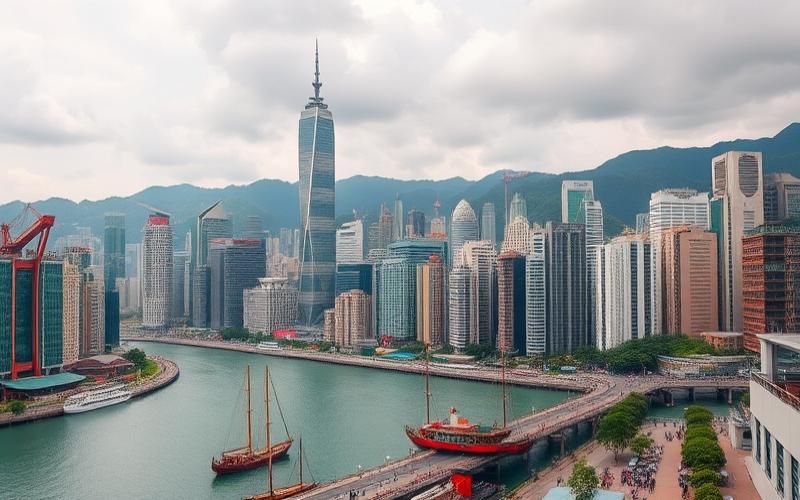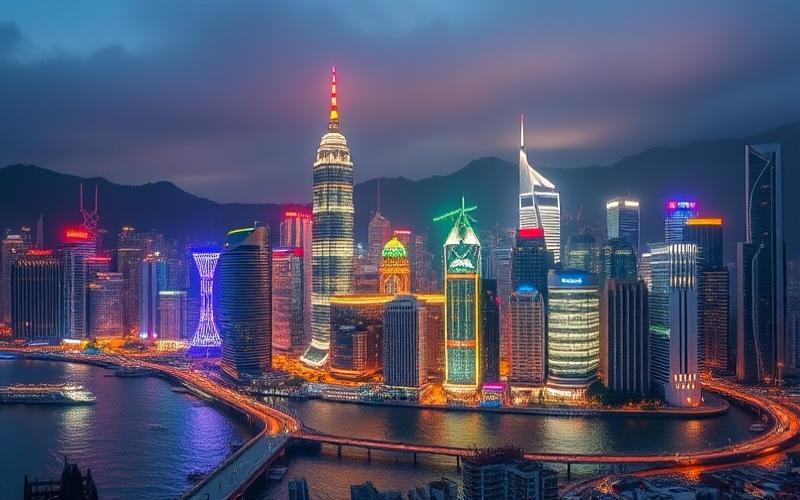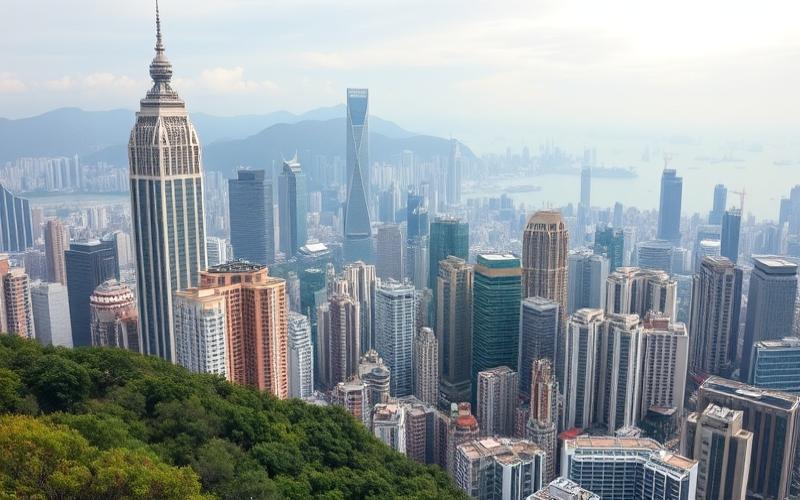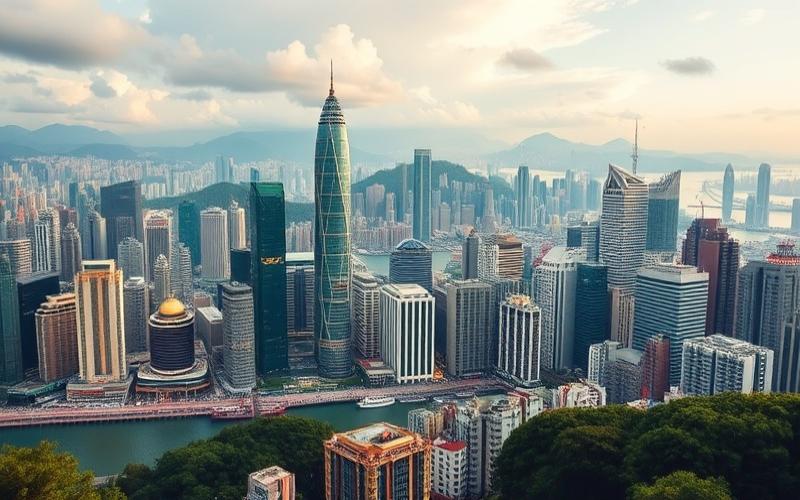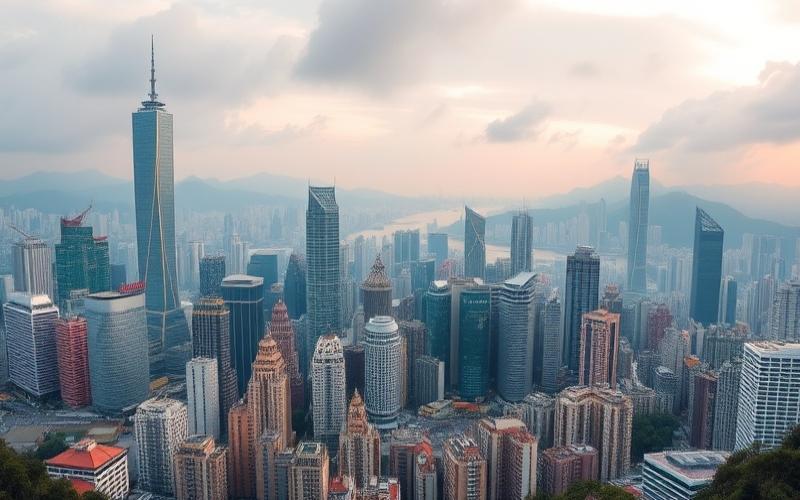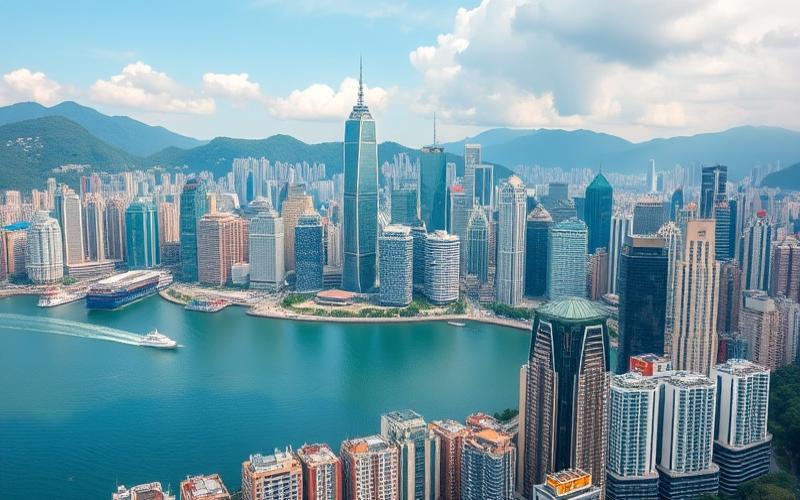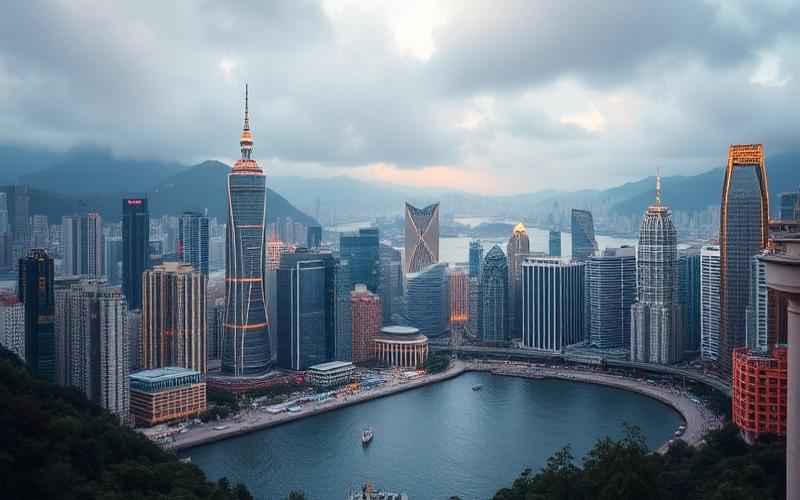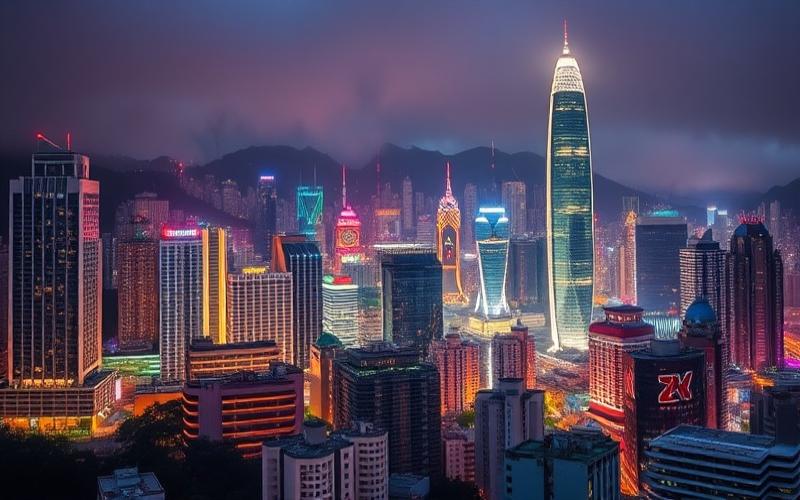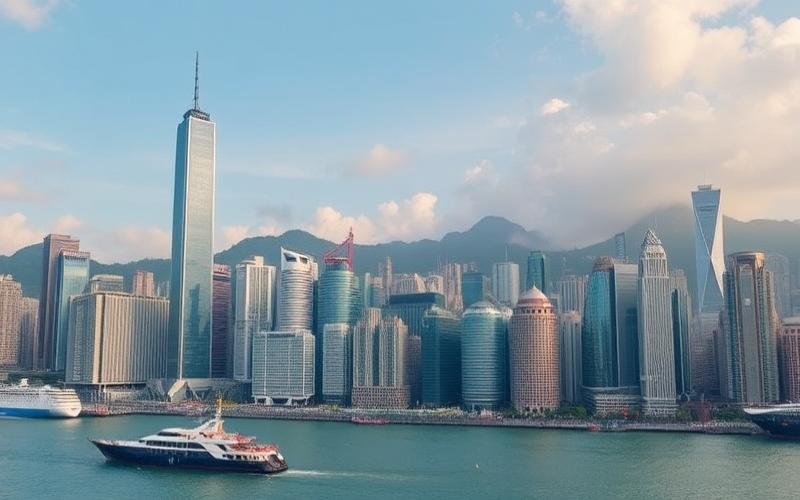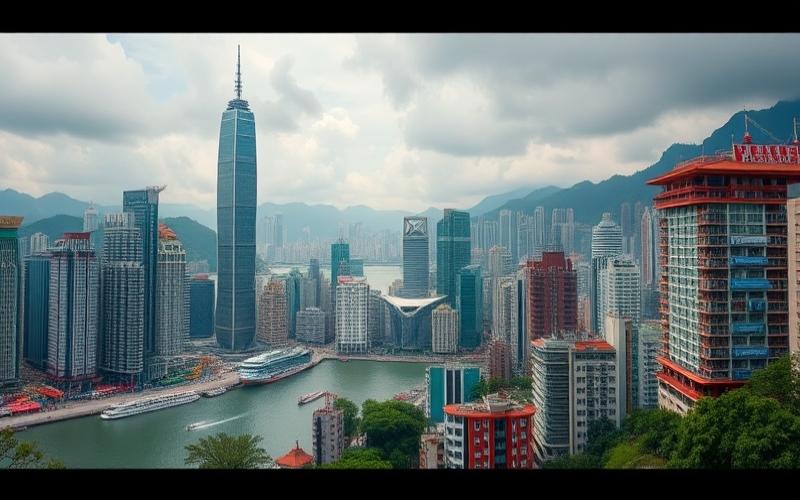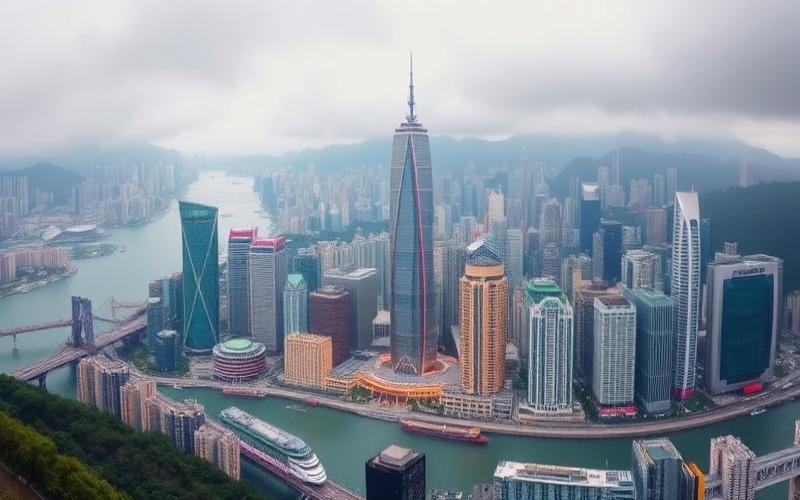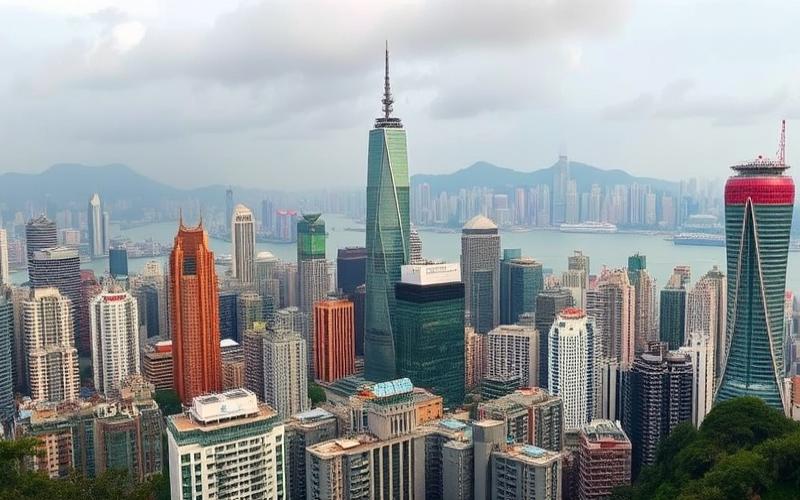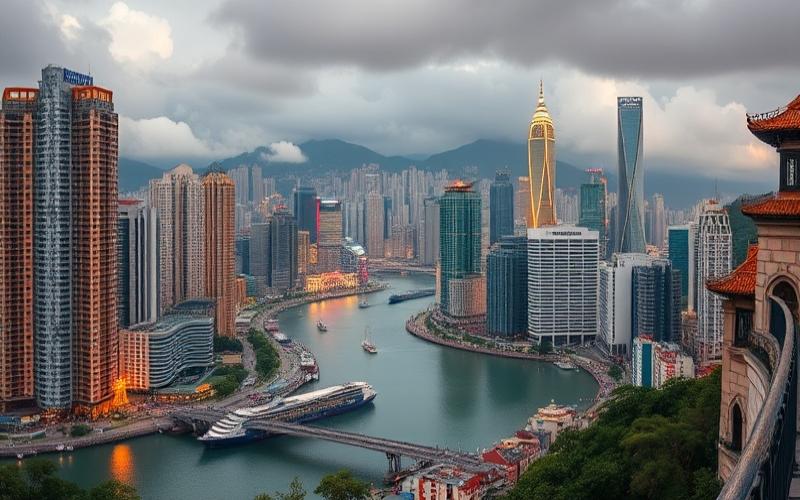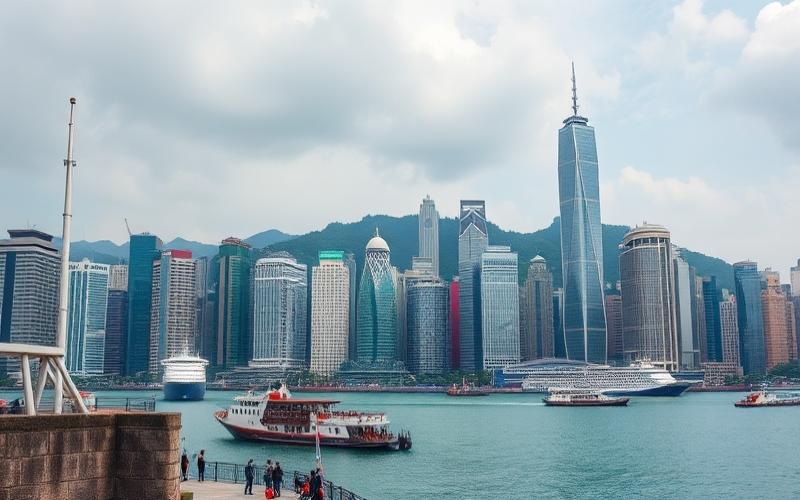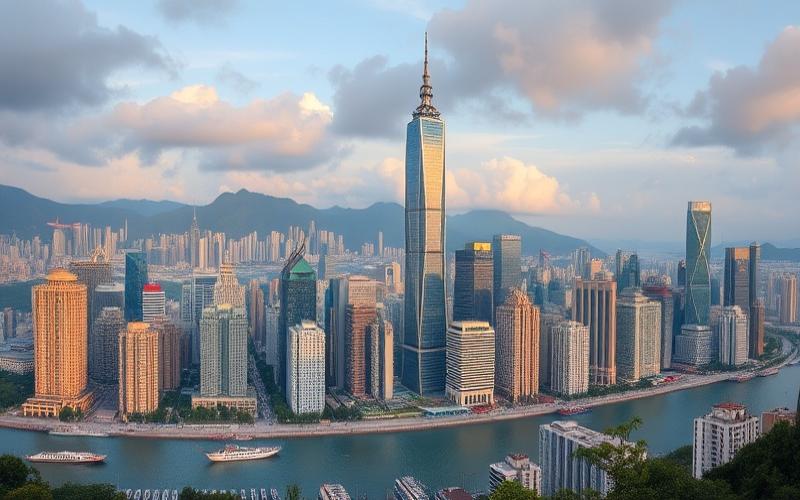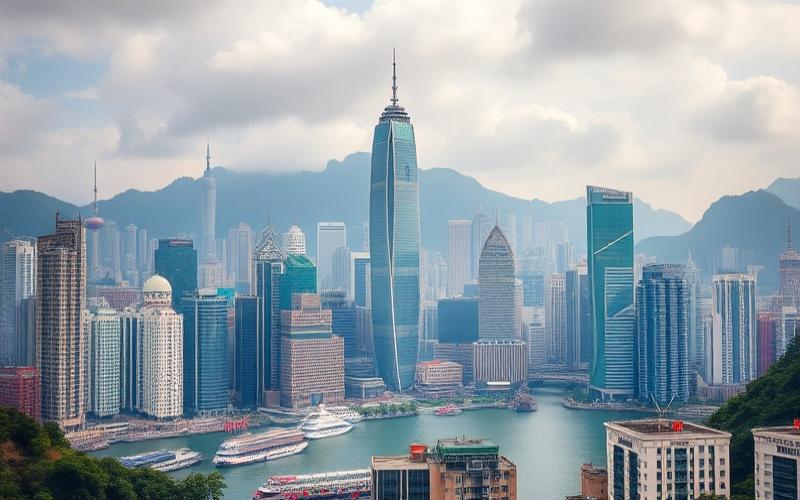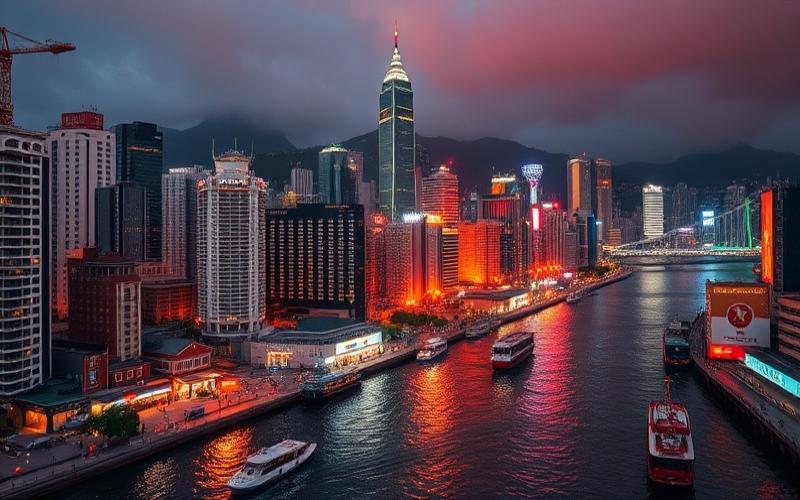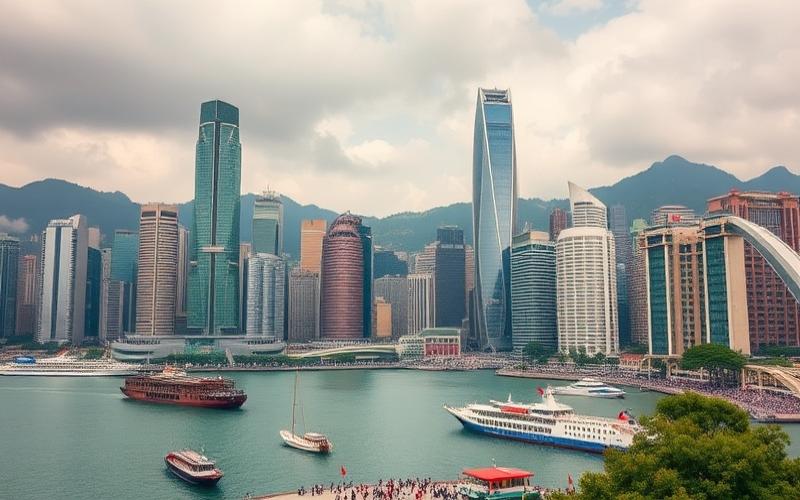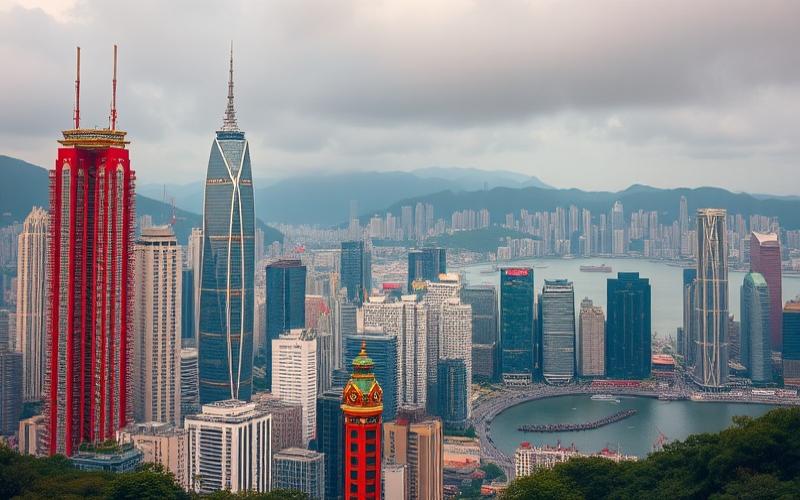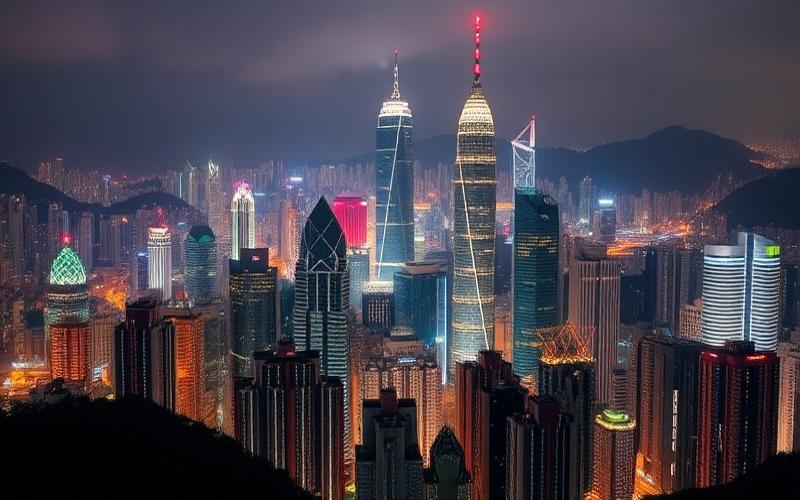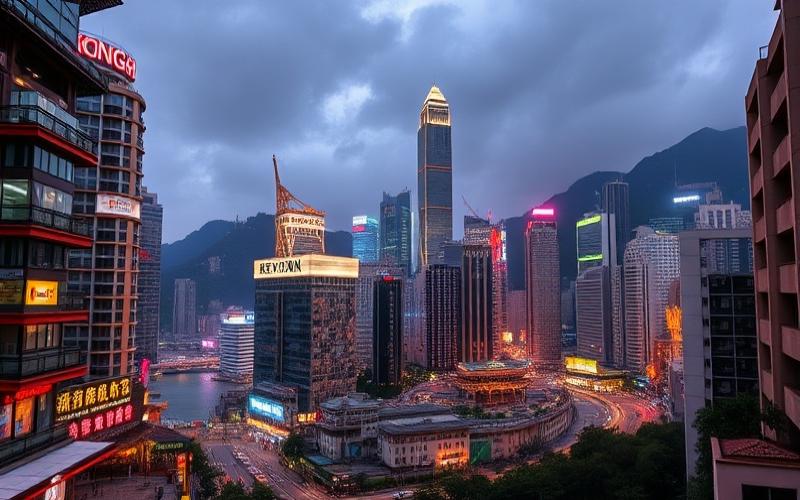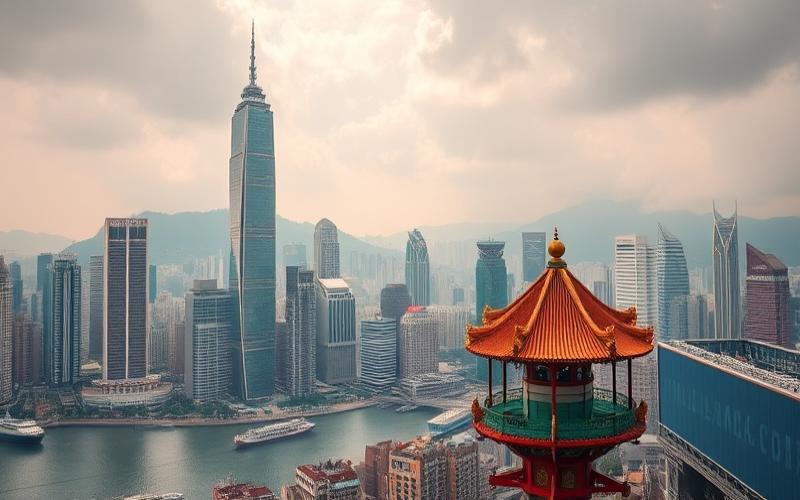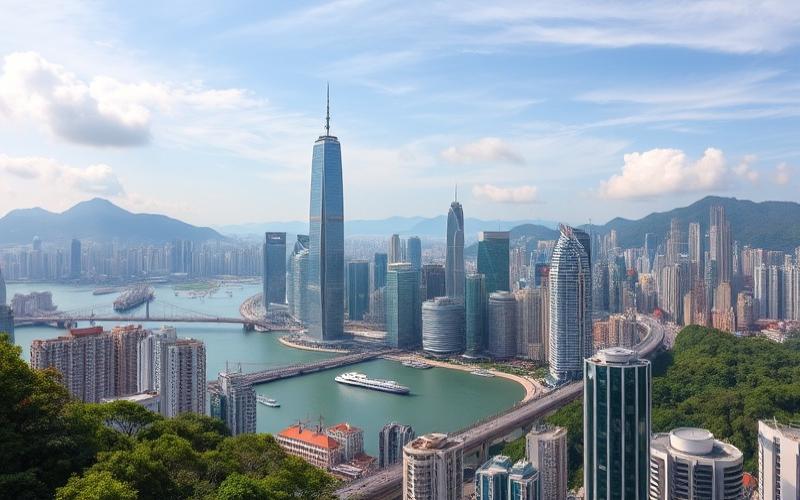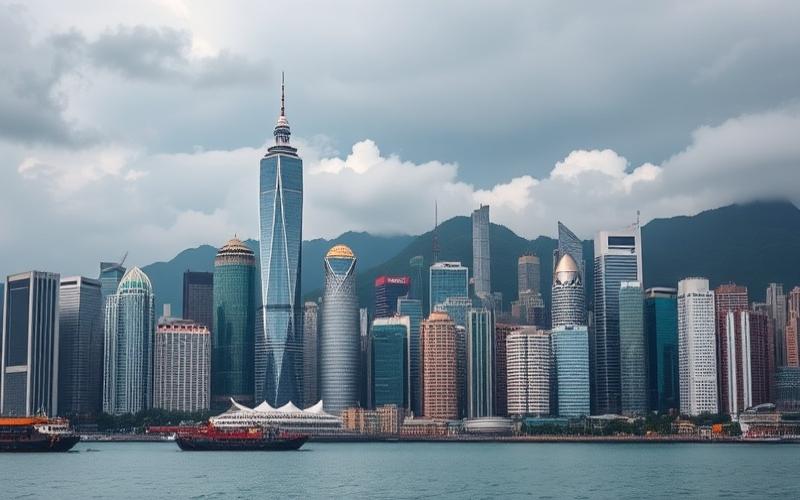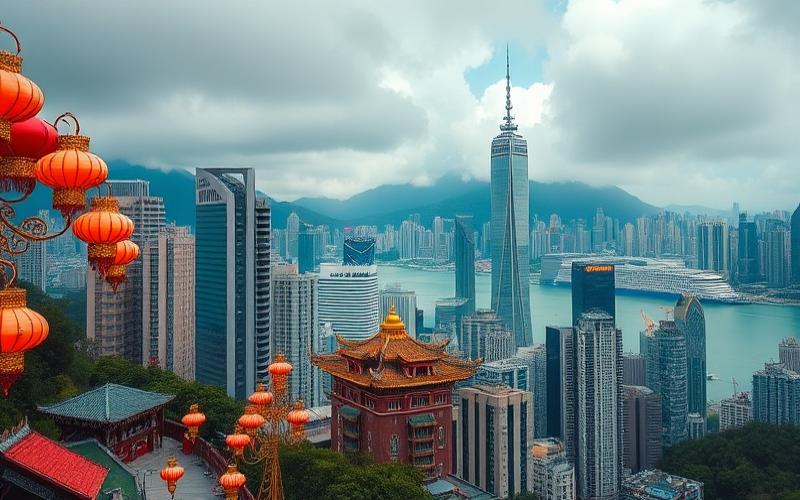
 Published on and written by Cyril Jarnias
Published on and written by Cyril Jarnias
Hong Kong, a global trade hub, is renowned for its dynamic economy and cutting-edge infrastructure, yet few recognize its invaluable potential in industrial real estate.
With the rise of e-commerce and logistics, Hong Kong’s free zones are now positioning themselves as strategic hubs, attracting investors and businesses seeking to optimize their operations.
Exploring these zones, where innovation meets efficiency, reveals an ecosystem conducive to expansion and development, offering tax benefits and unparalleled connectivity in the region.
Whether you’re a seasoned investor or a bold entrepreneur, understanding the importance of Hong Kong’s free zones is essential to seize the unique opportunities in this booming market.
Overview of Hong Kong’s Free Zones for Industrial Real Estate
The rise of free zones in Hong Kong is rooted in an industrial history marked by adaptability and the pursuit of international competitiveness. Since the post-war era, Hong Kong has attracted local and foreign entrepreneurs through a lenient regulatory environment, affordable labor, and major port infrastructure. These conditions fostered the rapid development of sectors such as textiles, electronics, and watchmaking.
Strategic and Economic Importance in Industrial Real Estate:
- Free zones have accommodated strategic export industries, strengthening Hong Kong’s position as a logistics platform in Asia.
- They play a central role in the local industrial real estate sector by boosting demand for modern warehouses, scalable factories, and logistics centers connected to port networks.
- Industrial real estate serves as an economic pillar benefiting property conglomerates that also dominate other segments of the urban fabric.
Key Features of Industrial Free Zones:
| Features | Specifics in Hong Kong |
|---|---|
| Infrastructure | Automated warehouses, direct access to ports (Kwun Tong, Tsing Yi), efficient road networks |
| Tax Benefits | Low corporate tax for exporting companies; temporary exemptions on certain duties during launch or redevelopment |
| Flexible Regulations | Streamlined procedures for business creation/modification; absence of strict quotas on certain trade flows |
| Logistics Accessibility | Immediate proximity to global ports (Victoria Harbour) and international airports; integrated multimodal platforms |
Additional Benefits:
- Free repatriation of capital
- Duty-free import of machinery/raw materials
- Facilitated access to export credit with favorable rates
Summary list of available infrastructure:
- Dedicated industrial parks (e.g., Kwai Tsing Container Terminals)
- High-tech logistics centers adapted to modern supply chains
- Flexible spaces for innovative SMEs via public revitalization programs
Key Free Zones & Landmark Projects:
| Zone/Project | Main Sector | Notable Companies/Exemplary Operations |
|---|---|---|
| Kwai Chung Container Port | Logistics/Warehousing | Hutchison Ports Holdings; CMA CGM |
| Tseung Kwan O Industrial Estate | Electronics/IT | Foxconn Technology Group |
| Science Park & industrial building revitalization | Innovation/Tech | Local startups funded by InvestHK |
The public program launched in 2009 also aims to repurpose unused old industrial buildings to offer more spaces suited to emerging industries—particularly technological or creative ones—while maintaining their financial accessibility.
Current & Future Trends:
Factors influencing future development:
- Accelerated digital transformation requiring more automated warehouses connected to the industrial internet.
- Growing pressure on available land pushing toward vertical densification (multi-level warehouses).
- Potential tightening of environmental standards mandating energy modernization of existing real estate.
Potential Risks:
- Regional geopolitical tensions impacting certain international trade flows.
- Increased competition with emerging hubs in Southeast Asia also offering attractive taxation and lower costs.
Industrial free zones will remain foundational to Hong Kong’s economy but must adapt quickly to ensure their real estate continues to meet the globalized expectations of modern supply chains while integrating regulatory flexibility and technological innovations.
Good to Know:
Hong Kong’s free zones have played a crucial role in developing the industrial real estate sector, serving as strategic hubs with cutting-edge infrastructure like warehouses and modern logistics terminals, offering businesses attractive tax and regulatory benefits such as exemptions on certain import taxes. Historically, these zones have evolved to attract multinationals, particularly in Tsing Yi and Kwai Chung, where logistics accessibility is optimized by direct connections to maritime and road transport networks. Substantial projects like the Air Cargo Terminal at the international airport have reinforced their positioning as commercial pivots. Current trends show a growing emphasis on sustainability and technological innovation, with the implementation of automation and green energy solutions, promising to reshape the future of the industrial real estate market and maintain Hong Kong’s competitive appeal amid rising global trade tensions.
Benefits of Logistics Warehouses in Hong Kong for Investors
Hong Kong offers major strategic advantages for investors in the logistics warehouse sector, thanks to a unique combination of geographic location, global connectivity, tax benefits, and cutting-edge infrastructure.
Key Strengths of Logistics Warehouses in Hong Kong for Investors:
| Strength | Description | Example/Recent Statistic |
| Strategic Geographic Position | Hong Kong acts as a gateway to Asia, facilitating quick access to key regional markets (China, ASEAN, Japan, South Korea). | Immediate proximity to factories in Southern China, reducing cross-border transit times. |
| Global Connectivity | Hong Kong’s port is one of the busiest globally, and the international airport serves over 470 destinations. | 95% of air imports/exports involve high-value goods like artworks and antiques. |
| Tax Benefits in Free Zones | Hong Kong enjoys free port status: no customs duties or VAT on most stored or transshipped goods. | Only a few products (alcohol, tobacco, oils) are taxed; this saves thousands per shipment. |
| Advanced Logistics Infrastructure | Efficient multimodal transport network: deep-water ports, modern highways, an airport ranked among the world’s best for cargo. | Warehouses are equipped with advanced management systems (WMS, real-time tracking). |
| Flexibility and Sector Expertise | Strong presence of international logistics providers offering tailored solutions for all types of goods, including sensitive or luxury items. | Ability to handle lithium batteries, artworks, or luxury products safely. |
| Financial Attractiveness | Favorable taxation, no tax on profits from offshore activities, transparent and stable business environment. | Highly competitive logistics ecosystem enabling negotiation of storage and service costs. |
List of Specific Benefits for Investors:
- Optimized import/export costs due to no customs duties on nearly all goods.
- Facilitated access to international markets: streamlined customs procedures, reduced transit times.
- Reduced logistics risks via modern infrastructure and experienced providers.
- Real estate asset appreciation: scarcity and high demand for well-located logistics spaces in Hong Kong create superior yield potential.
- Adoption of cutting-edge technologies (real-time tracking, warehouse automation) enhancing operational efficiency and transparency for investors.
Key Takeaway:
Investing in logistics real estate in Hong Kong means benefiting from a highly connected global platform, tax advantages, world-class infrastructure, and a position at the heart of Asian and global trade flows.
Good to Know:
Hong Kong’s unique geographic position as Asia’s gateway gives logistics warehouses a strategic advantage for investors, offering direct access to rapidly expanding Asian markets. Hong Kong’s port ranks among the busiest globally, and with an international airport that is a major cargo hub, it ensures exceptional global connectivity that strengthens international trade. Free zones provide attractive tax benefits, including customs and tax exemptions that maximize returns for investors. Well-developed transport infrastructure, such as efficient road and rail links, optimizes the supply chain and reduces operational costs. Moreover, according to Hong Kong’s Census and Statistics Department, cargo volume increased by 6% in 2022, illustrating the region’s logistics dynamism. These factors, combined with local financial incentives, make Hong Kong a must-consider destination for industrial real estate.
Maximizing Industrial Real Estate Returns in Free Zones
Specific strategies to maximize industrial real estate returns in Hong Kong’s free zones:
- Select strategic locations: prioritize industrial areas near major logistics infrastructure (ports, airports) to attract export-oriented tenants.
- Invest in versatile buildings: favor scalable warehouses adaptable to various sectors (logistics, electronics, textiles) to limit vacancy periods.
- Optimize regulatory and tax benefits: structure investments to fully leverage available exemptions and reliefs.
- Develop value-added services: integrate logistics, maintenance, or integrated management services to retain industrial tenants.
- Strengthen sector synergies: encourage co-location of SMEs and large corporations to multiply subcontracting and innovation opportunities.
| Strategy | Impact on Returns |
|---|---|
| Logistics Location | Maximizes rental attractiveness |
| Versatile Building | Reduces vacancy and speeds up reletting |
| Leveraging Incentives | Decreases fixed costs and increases net margin |
| Integrated Services | Retains tenants |
| Sector Synergies | Generates new demand |
Tax and Regulatory Benefits of Hong Kong’s Free Zones:
- Customs duty exemptions: no taxes on importing raw materials, machinery, or equipment for processing or re-export.
- Reduced taxation: among the world’s lowest corporate tax rates, with potential exemptions for export-generated income.
- Administrative simplification: streamlined procedures for business creation, licensing, and operations management.
- Labor flexibility: facilitated access to foreign and local workforce, quick adaptation of staffing to activity levels.
- Capital protection: complete freedom to repatriate profits and dividends without exchange controls.
| Benefit | Practical Application |
|---|---|
| Customs Exemption | Immediate reduction in industrial equipment costs |
| Favorable Taxation | Increases net profitability for the investor |
| Simplified Procedures | Time savings when launching new projects |
| HR Flexibility | Responsiveness to demand fluctuations |
| Financial Freedom | Optimizes international cash flow |
Concrete Examples of Past Success in Hong Kong’s Free Zones:
Electronics and Assembly Sector: many international companies have leveraged the port free zone to set up production and logistics units, facilitating rapid import-export of components and finished products.
Textile Industry: integrating the textile supply chain (spinning, garment making, logistics) in free zones optimized lead times and costs, making Hong Kong a regional leader in clothing exports for decades.
Advanced Logistics: transport and storage companies developed regional hubs, leveraging exceptional connectivity and attractive tax regimes to serve the entire Asia-Pacific.
Impact of Current Economic Trends:
- Digitalization and E-commerce: growing demand for modern logistics platforms boosts the industrial real estate market in free zones.
- Supply Chain Restructuring: the search for resilience drives businesses to locate in efficient, tax-competitive hubs like Hong Kong.
- Geopolitical Tensions: some investors show increased caution, but Hong Kong’s regulatory stability continues to attract international players.
- Land Cost Pressure: scarcity of industrial land in Hong Kong encourages maximizing occupancy density and investing in assets with high appreciation potential.
Future Growth Prospects:
- Growth in Intra-Asian Trade: Hong Kong’s role as a regional gateway remains central, supporting demand for industrial real estate.
- Upscaling of Industrial Activities: development of high-value-added sectors (green technologies, biotech, smart logistics).
- Deployment of New Infrastructure: port expansion projects and logistics network improvements foster emergence of new free zones.
Practical Tips for Investors:
- Thoroughly analyze the sector positioning of the targeted free zone.
- Prioritize local partnerships to better understand market specifics.
- Ensure regulatory compliance at every stage (planning, customs, taxation).
- Diversify tenant types to limit sector risk.
- Implement dynamic real estate asset management (renovation, adaptation to environmental standards).
Common Mistakes to Avoid:
- Underestimating the complexity of administrative procedures despite their simplification.
- Neglecting rapid evolution of regulations and public policies.
- Focusing on a single tenant sector without diversification.
- Overlooking risks related to international market volatility.
- Investing in inflexible assets poorly suited to evolving needs of modern industries.
Key Text: Hong Kong’s free zones offer a unique fiscal and regulatory framework that, when fully leveraged, allows maximizing industrial real estate profitability, provided an agile and sectorially diversified strategy is adopted.
Good to Know:
To maximize industrial real estate returns in Hong Kong’s free zones, it’s essential to leverage tax and regulatory benefits, such as tax reductions and increased operational flexibility. For example, the electronics industry flourished here thanks to these measures, attracting numerous investors. With current trends favoring e-commerce and logistics, the industrial sector is well-positioned for growth, especially by capitalizing on modern infrastructure and strategic proximity to Asian markets. Investors should ensure portfolio diversification to mitigate risks from economic fluctuations and avoid the trap of overestimating potential returns. Prioritizing thorough market studies and establishing local partnerships can also prove wise for success in this competitive environment.
Disclaimer: The information provided on this website is for informational purposes only and does not constitute financial, legal, or professional advice. We encourage you to consult qualified experts before making any investment, real estate, or expatriation decisions. Although we strive to maintain up-to-date and accurate information, we do not guarantee the completeness, accuracy, or timeliness of the proposed content. As investment and expatriation involve risks, we disclaim any liability for potential losses or damages arising from the use of this site. Your use of this site confirms your acceptance of these terms and your understanding of the associated risks.

